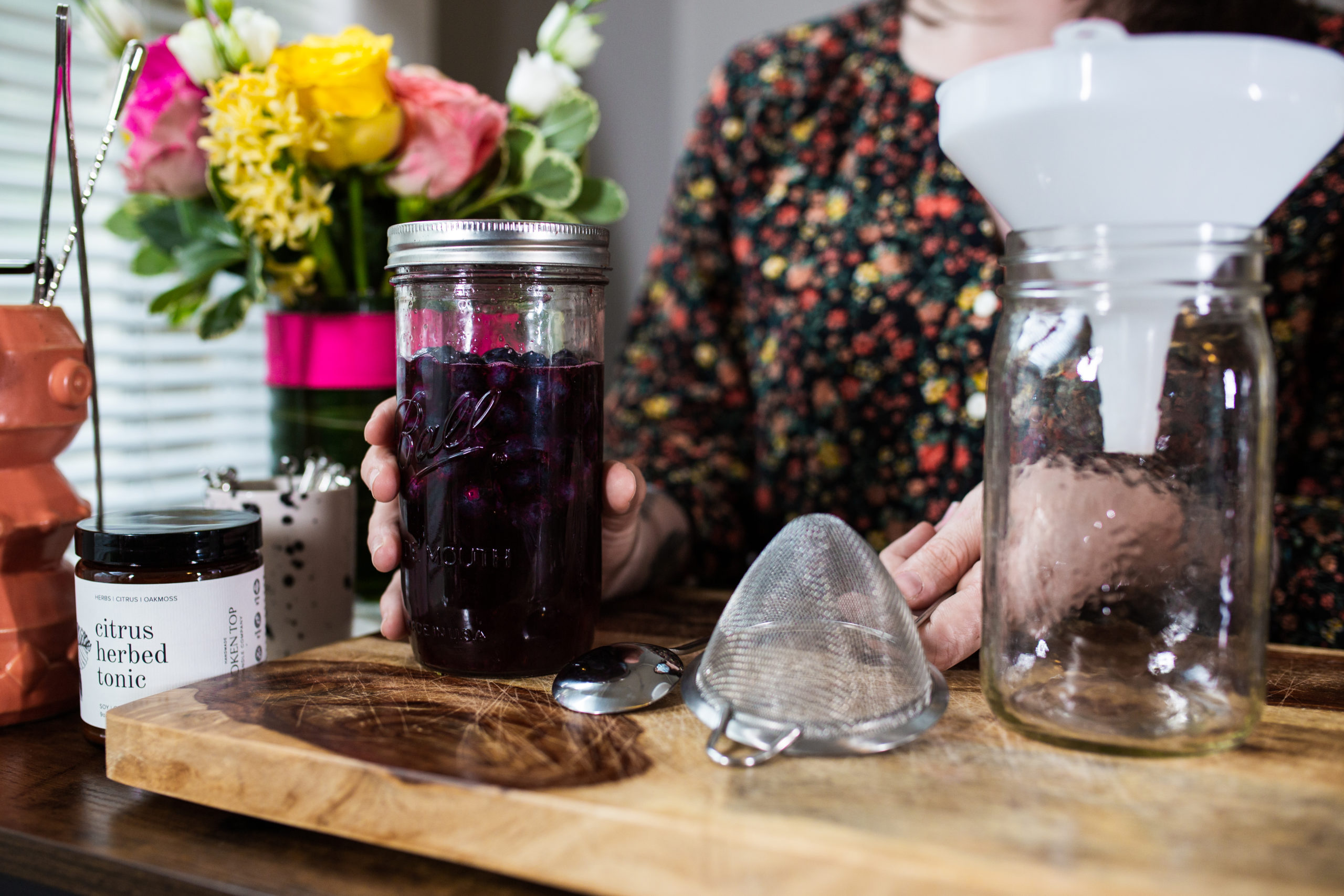Interview with Morgan McKinney of Best Shot Co. and Bari
Words by Heidi Rupke
The term “sustainable food” sometimes conjures images of bland and virtuous-looking bean dishes. Morgan McKinney, owner of Best Shot Co., proves that saving food is both flavorful and fun. And spoiler alert: it can involve alcohol.

In March 2020, Morgan pivoted quickly from nearly full-time work in the restaurant industry to very part-time work in the industry when the pandemic forced many closures. Her skill set as a bartender helped her build a new business, one that teaches people how to make their own bar-worthy cocktails from their home kitchens. The Best Shot Co. hosts twice-weekly Zoom classes that focus on the history, components and methods for creating two cocktails each night. Teaching and listening to customers has always been Morgan’s jam at the bar; now she’s officially in the instructor role as her students juice, pulverize, stir and shake their mixtures.
Everyone enrolled in her classes must purchase their own ingredients for the drinks. What they get for free is Morgan’s well-practiced tips for making all those ingredients stretch farther.

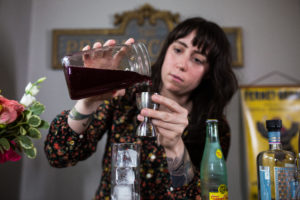
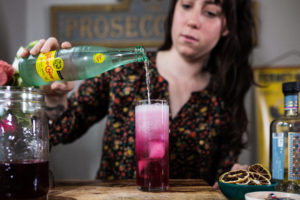
“If I’m infusing something, I always ask myself ‘How can I use these ingredients at least one more time?’” says Morgan.
For example, if she infuses Campari with pomegranate and pineapple, the remaining solids can be reused to make shrubs, which are non-alcoholic beverages fermented with vinegar, water, sugar and fruit. Vermouth-soaked strawberries can be reduced to make a delectable ice cream topping. But the biggest pay-off comes from citrus.
“Citrus is used in almost every cocktail. I save the husks in my freezer the same way you save veggie scraps to make stock,” says Morgan.
When sufficient numbers of husks have been collected, Morgan defrosts them, adds water and boils them for no more than six minutes so that they don’t become bitter. She then adds citric acid (available to purchase at Maggie’s Pharm or Sprouts), which adjusts the pH level so that the acidity matches more traditionally procured lemon juice. At this point, the oils have been extracted and the husks are ready for the compost bin. Another option for citrus peels is to dehydrate them and then pulverize them. They can also be roasted. The method varies depending on the flavor Morgan wants to achieve. The bottom line is that citrus husks and peels are gold, both for flavor and the pocketbook.

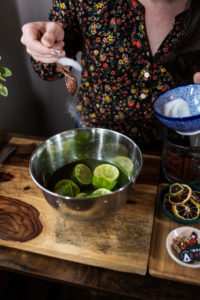
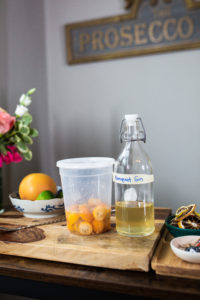
Cocktails are a natural place to save food from landfills. Most ingredients keep for a while in the fridge or freezer. Alcohol and sugar are natural preservatives, as is citrus juice. As Morgan says, “These things were pretty much designed for long-term storage.”
If you’re looking for a cocktail to try, Morgan’s current favorite is The Last Word. It is equal parts gin, green chartreuse, Luxardo (marzipan cherry liquor from Italy) and lime juice. And if you don’t do alcohol, the same principles apply for saving husks for non-alcoholic beverages. Zest from frozen husks is also great for elevating flavors of baked goods like muffins and breads.
Morgan’s latest business venture allows her to continue to create delectable cocktails while also teaching her Zoom students some tricks of the trade. You can catch her behind the bar at Bari one night a week or you can sign up for one or more of her classes. Odds are, you’ll drink something delicious. You may also learn how to prolong that deliciousness through preserving and reusing ingredients. Either way, we think you’ll never look at a lemon peel the same way again.
You can become a fantastic bartender too! Check out Best Shot co. here for recipes, classes, and more. Follow Morgan @BestShotCo

